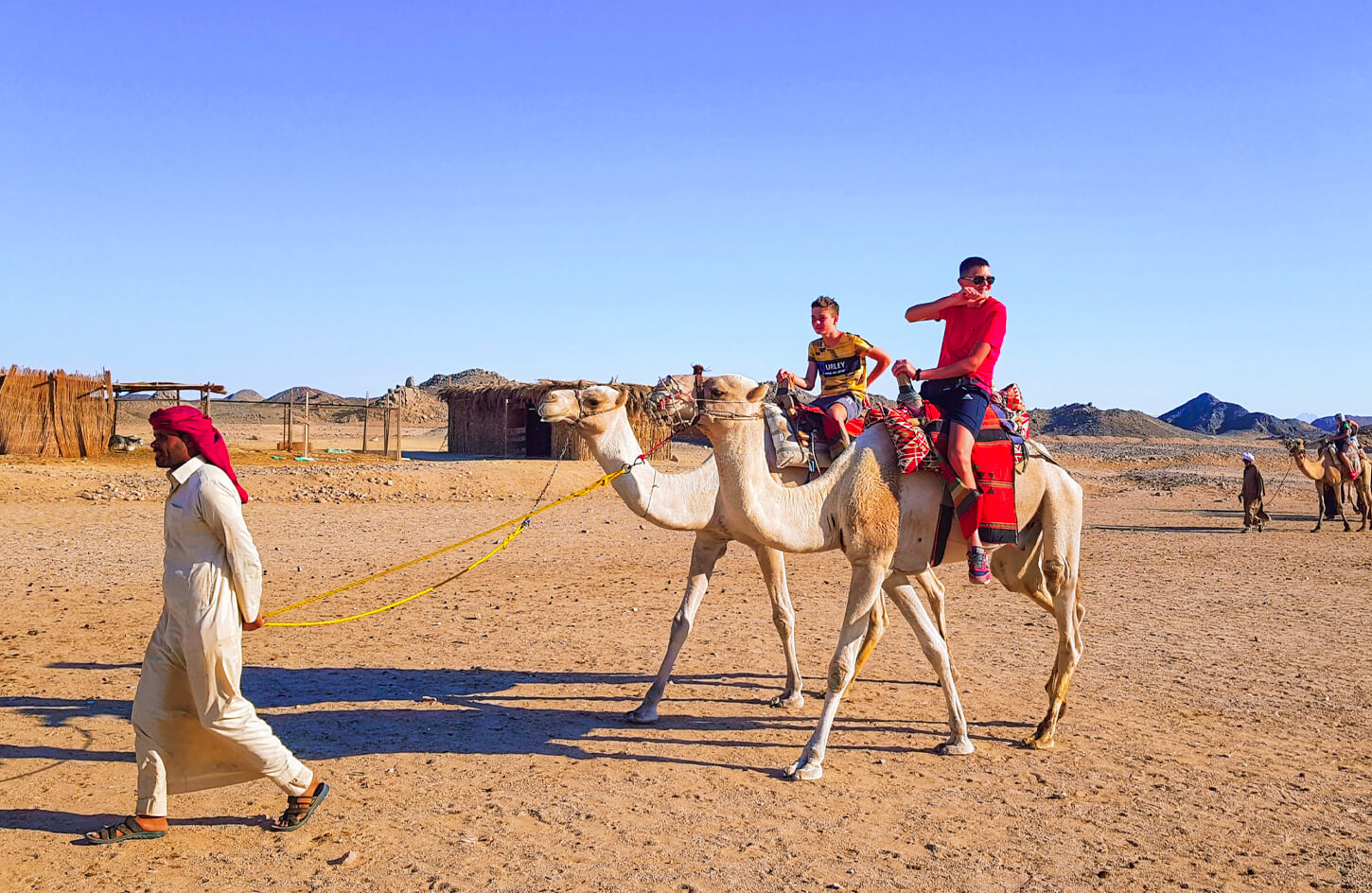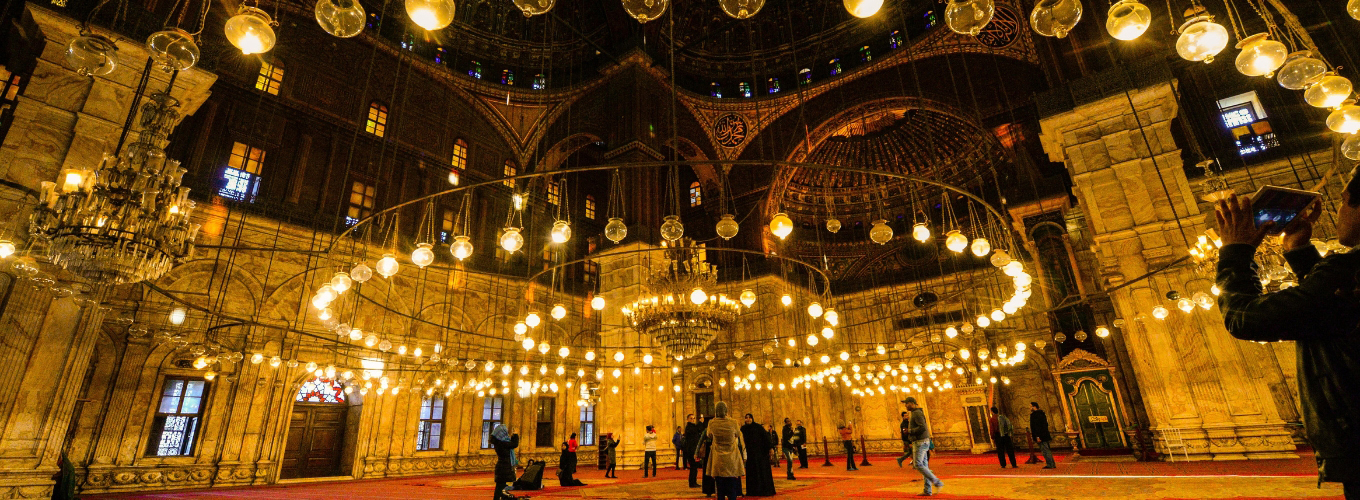Egypt in January offers travelers one of the most delightful experi...

The Mosque of Muhammad Ali is one of the most famous landmarks in Cairo, attracting millions of visitors every year. Known as the Alabaster Mosque due to its distinctive white stone, it stands proudly within the historic Citadel of Cairo. For travelers seeking both cultural enrichment and breathtaking views, this mosque is an essential stop.
Beyond being a religious monument, it embodies a blend of Ottoman-inspired architecture and Egyptian heritage, offering insight into the country’s history during the 19th century. Visiting this mosque is not only about admiring its beauty but also about understanding the legacy of Muhammad Ali Pasha, the ruler often regarded as the founder of modern Egypt.
The mosque was commissioned by Muhammad Ali Pasha in memory of his son, Tusun Pasha, who died in 1816. Construction began in 1830 and was completed in 1848, though finishing touches continued for years after. This period marked Egypt’s modernization, and Muhammad Ali sought to leave behind a legacy that reflected power and progress
. By building a mosque similar in style to the grand mosques of Istanbul, he aimed to showcase Egypt’s rising status in the region. The mosque became more than a religious site; it was a political statement, symbolizing Egypt’s independence from the Ottoman Empire. Over time, it also became a national monument. Today, its historical importance lies not only in its connection to Muhammad Ali’s rule but also in its role as a witness to the country’s transformations over nearly two centuries.
The architecture of the Mosque of Muhammad Ali is a stunning example of Ottoman influence in Egypt. Inspired by the Sultan Ahmed Mosque (the Blue Mosque) in Istanbul, it features a large central dome surrounded by smaller domes and two tall, slender minarets that dominate Cairo’s skyline. The interior is equally impressive, adorned with alabaster panels, intricately designed chandeliers, and stained-glass windows that allow light to filter in softly, creating an atmosphere of serenity.
The mosque’s prayer hall is vast, capable of accommodating thousands of worshippers. The courtyard, surrounded by arcades, includes a beautifully decorated ablution fountain. Every corner of the structure reflects grandeur, from the detailed carvings to the imposing domes, making it one of the most remarkable examples of 19th-century Islamic architecture in Egypt.
Beyond its visual beauty, the mosque holds deep cultural and religious significance. It continues to function as a place of worship, where local Muslims gather for prayers and religious celebrations. The site also stands as a symbol of Egypt’s Islamic heritage, linking the modern era to centuries of tradition. For travelers, visiting the mosque provides an opportunity to learn about the role religion plays in Egyptian society, as well as the political and cultural ambitions of Muhammad Ali Pasha.
Additionally, the mosque has become a key site for cultural tourism, where guides share stories of its construction, symbolism, and enduring influence. For many, standing inside the mosque while hearing the call to prayer resonates as a spiritual experience that adds meaning to their journey in Cairo.

The Mosque of Muhammad Ali is located within the Citadel of Cairo, a fortress built by Salah al-Din in the 12th century. The Citadel itself is a UNESCO World Heritage Site and houses several other important mosques, museums, and historical structures. From its elevated position, visitors enjoy panoramic views of Cairo, stretching as far as the Pyramids of Giza on clear days. The mosque is undoubtedly the centerpiece, but a tour of the Citadel offers travelers much more.
Museums such as the Military Museum and Police Museum provide fascinating insights into Egypt’s history, while other mosques within the complex, such as the Mosque of Sultan al-Nasir, enrich the cultural experience. Exploring the Citadel alongside the Mosque of Muhammad Ali allows visitors to step into Egypt’s layered past, combining medieval fortifications, Ottoman grandeur, and modern national pride.
Timing is crucial when planning a visit to the Mosque of Muhammad Ali. The best months to explore Cairo are between October and April, when the weather is cooler and more pleasant. Visiting in the early morning or late afternoon is recommended to avoid crowds and to witness the mosque’s domes glowing in the soft light. Fridays, being the holy day for Muslims, may be busier as locals attend prayers, but they also offer a chance to experience the mosque’s religious vibrancy.
Sunset from the Citadel is particularly memorable, as the cityscape turns golden and the mosque stands illuminated against the sky. For travelers seeking photography opportunities, visiting during the golden hour ensures breathtaking images that capture both the mosque’s beauty and Cairo’s dynamic backdrop.
To make the most of your visit, a few practical tips can be helpful. Modest dress is required; women are advised to cover their shoulders and knees, and headscarves may be needed inside the mosque. Shoes must be removed before entering the prayer hall, so comfortable slip-on footwear is recommended. Hiring a local guide enriches the experience, providing historical context and cultural insights that self-guided tours may miss. Travelers should allow at least two hours to fully appreciate the mosque and surrounding Citadel.
It is also advisable to carry bottled water, especially during warmer months, as the climb up to the Citadel can be tiring. Lastly, combining this visit with nearby attractions, such as the Egyptian Museum or Old Cairo, makes for a full and rewarding day of exploration.
Many travel agencies in Egypt, including ours, offer tailored tours that include the Mosque of Muhammad Ali. A typical Cairo city tour might start with the Egyptian Museum, continue to the Citadel, and end with a stroll through the historic streets of Old Cairo or Khan el-Khalili Bazaar. Private tours allow for a flexible pace, giving travelers time to enjoy the mosque’s intricate details and scenic views. For those with limited time, half-day tours focusing on the Citadel and its highlights are also available.
Multi-day itineraries often combine Cairo’s landmarks with day trips to the Pyramids of Giza, Saqqara, or even Luxor and Aswan. Including the Mosque of Muhammad Ali in such itineraries ensures travelers experience both Egypt’s ancient wonders and its more recent historical landmarks, offering a balanced cultural journey.
For many travelers, visiting the Mosque of Muhammad Ali is an unforgettable highlight of their time in Cairo. The sheer size and beauty of the mosque leave a lasting impression, while the views from the Citadel provide a unique perspective on the city.
Visitors often describe a sense of awe upon entering the prayer hall, with its grand chandeliers and intricate details. Others highlight the peaceful atmosphere that contrasts with Cairo’s bustling streets below.
For photographers, the mosque is a dream location, offering countless opportunities to capture both architectural details and sweeping panoramas. Ultimately, the experience resonates differently for each traveler, but nearly all agree that it is a must-see destination that deepens their appreciation of Egypt’s diverse history and culture.
The Mosque of Muhammad Ali is more than just a beautiful building; it is a gateway into Egypt’s history, culture, and spiritual life. Whether you are drawn to its stunning architecture, fascinated by the legacy of Muhammad Ali Pasha, or simply looking for the best views in Cairo, the mosque delivers an experience that combines all of these elements.
For travelers, it offers an essential stop on any Cairo itinerary, one that captures both the grandeur of the past and the vibrancy of the present. Visiting this mosque ensures a richer, more meaningful journey through Egypt, leaving you with lasting memories and a deeper connection to one of the world’s most remarkable destinations.
We offer tours to Egypt’s most famous destinations such as the Pyramids and Sphinx in Giza, Karnak Temple and Luxor, Valley of the Kings, Sharm El Sheikh and Hurghada for beaches and diving, and Alexandria.
We provide organized tours, luxury hotel and resort bookings, comfortable transportation services, experienced tour guides, and activity ticket bookings such as diving, desert safaris, and Nile cruises.